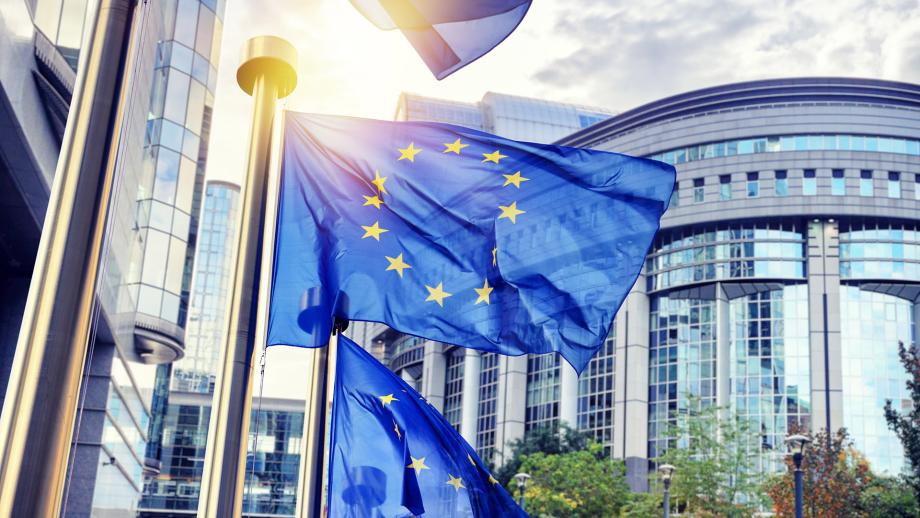Brexit and Rule of Law: EU in Summit Driving Seat on Both

The EU summit this week (10-11 December) will seek to avert two impending crises by concluding deals on the €1.8 trillion budget and recovery package and the post-Brexit relationship with the UK.
While pessimism is rife, time short, and the gravity of the situation daunting, EU leaders are bolstered by favourable prevailing winds - including a surplus of political capital.
If the EU presses its advantage, the bloc can successfully secure outcomes that both protect the EU's core democratic principles and promote its future prosperity and well-being.
The Polish and Hungarian governments have threatened to veto the EU recovery fund and multi-annual financial framework if they remain tied to rule of law provisions. The presumed bet is that southern European countries, still desperate for financial help after weathering the first coronavirus wave, will eventually force the bloc to relent.
No longer at loggerheads on stimulus spending, however, European governments, both North/South and East/West, are now instead uniting, unperturbed, on rule of law.
And they have the backing of an overwhelming majority of European citizens, with 77 per cent of respondents in a survey commissioned by the European Parliament expressing support for a budgetary mechanism on rule of law.
Chancellor Angela Merkel, representing Germany in the role of EU presidency, has pragmatically called for compromise from "all sides" to "square the circle".
Little, if any, further ground need be given though beyond perhaps a symbolic gesture for the two governments to save face.
Warsaw and Budapest in fact are already being boxed in on all sides.
Polish prime minister Mateusz Morawiecki can ill-afford another political quagmire.
His government is experiencing rapidly dwindling polling support following nationwide protests amid several domestic rows.
Poland cracking?
The current EU budget spat, furthermore, has seen members of the ruling coalition turn to open warfare, with deputy prime minister Jaroslaw Gowin expressing a desire to abandon the veto threat.
Prime minister Viktor Orbán's domestic support has also softened, with one poll indicating that his party could lose to a united opposition list in 2022.
This all before the recent Brussels sex scandal involving a prominent Fidesz MEP that has enveloped headlines.
Hungary, like Poland, has also endured a difficult second wave of the pandemic and risks facing a tumultuous economic downturn that will only worsen if the EU budget isn't approved.
Mainstream European leaders, by contrast, are benefitting from a sky-high political standing, with post-pandemic rallies from April still largely intact, which will provide them greater latitude to stand pat as the budget deadline is breached this week.
Merkel has seen her job satisfaction numbers, now at 71 per cent (+7 from April and +18 from February), continue to soar as the pandemic has progressed.
Italian prime minister Giuseppe Conte's government, meanwhile, sports a 56-per cent approval score (+21 from February) and French President Emmanuel Macron earns a respectable 49 per cent confidence rating (+11 from February).
Any delay incurred will threaten every economy and pundits warn that failure to secure a budget deal could tarnish political legacies. EU leaders, nonetheless, are endowed with the public trust necessary to avoid an ill-advised capitulation and pursue alternative budgetary routes including, for example, the use of enhanced cooperation or an intergovernmental treaty.
A similar dynamic is at play on negotiations for a post-Brexit deal as EU Commission president Ursula von der Leyen and British prime minister Boris Johnson turn to last-ditch talks in an attempt to broker compromises on fisheries, fair competition, and dispute resolution protocols by a Wednesday (9 December) deadline.
Britain flailing
The British economy is in a tailspin - the Organisation for Economic Cooperation and Development (OECD) projects the UK economy will experience an 11.2 per cent drop this year followed by the weakest economic recovery of all major economies, with the exception of Argentina, in 2021.
Amid this tumult, British chancellor Rishi Sunak has introduced public sector pay freezes and moved to slash spending on foreign aid.
Johnson's political standing is no sight for sore eyes either. Unlike his European peers, not only has the British prime minister's post-Covid bounce dissipated but, at 56 per cent disapproval, he is, conversely, grappling with record low support. His political party is faring no better.
Any post-Brexit agreement will shape rules on tariffs and quotas, environmental and labour standards, state aid, and adjudication for years to come. Neither partner will want to end up on the wrong side of a deal.
With the UK under greater economic strain and political pressure, however, now is likely as good a time as any for the EU to secure favourable terms that ensures a level playing field and wards off a future race to the bottom.
The EU has reached the end of two perilous and fraught processes that will fundamentally define the union for decades to come.
The recovery plan and budget, in particular, have seen the bloc chart out an "all for one" path that has given the union new common purpose in combating the climate crisis and advancing research and innovation.
To make this mission whole and maintain public confidence though, resolve is now needed on protecting the core values of the community and in ensuring that the EU single market continues to equate to a commitment to decent living conditions for all.
This article was originally published on the EU Observer website on 8 December 2020

Associate Fellow, Centre for Global Europe